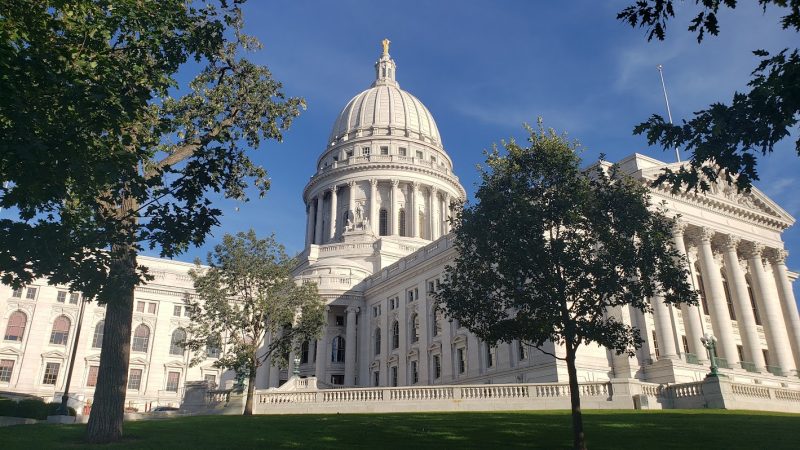Sen. Dan Knodl, chair of the Senate’s Shared Revenue, Elections and Consumer Protection Committee, tells WisPolitics he’s keeping an open mind on whether to require Milwaukee County and the city to get voter permission to impose new sales taxes.
The Germantown Republican was one of the original Assembly cosponsors of the bill before he joined the Senate this spring following his win in the special election for the 8th SD.
The referendum component has become one of the major sticking points between the two houses. Senate Majority Leader Devin LeMahieu, R-Oostburg, said last week his chamber would likely take out that requirement. And some have suggested voters are unlikely to approve increasing the sales tax to pay for the city and county’s pension obligations.
Assembly Speaker Robin Vos, R-Rochester, said taking out the requirement could kill the bill.
>> WisPolitics is now on the State Affairs network. Get custom keyword notifications, bill tracking and all WisPolitics content. Get the app or access via desktop.
Knodl said he was meeting yesterday with Milwaukee Mayor Cavalier Johnson as he gathered more input about the referendum component, along with other items in the bill.
“If everybody is a little bit unhappy, it might be good legislation. Let’s say that’s the target,” Knodl said.
Knodl’s committee has a public hearing planned today on the Senate version of the bill, which doesn’t include changes the Assembly made during a floor vote last week. Knodl said he’s unsure when his committee will exec the legislation.
He also said he has no red lines on the legislation other than his No. 1 priority is to keep a provision that would fully repeal the personal property tax. That has been a priority of Knodl’s for years.
Vos said last week he was done negotiating on the bill.
“I don’t feel that we’re in a take-it-or-leave-it situation. That’s why we’ll go through this process and see it through,” Knodl said.
The rest of the membership for the Senate Shared Revenue, Elections and Consumer Protection Committee has been filled.
LeMahieu created the committee after Knodl won the April 4 special election for the 8th SD to fill out the remainder of Republican Alberta Darling’s term.
Along with Knodl, the Republican members are Dan Feyen, of Fond du Lac, and Romaine Quinn, of Cameron. Feyen is the committee vice-chair.
The Dem members are Jeff Smith, of Brunswick, and Mark Spreitzer, of Beloit.
Spreitzer said yesterday he supported several of the changes Assembly Republicans made last week to the original version of the legislation. That includes stripping out a provision that would’ve allowed communities to count the number of arrests for local ordinance violations as one option to meet the maintenance of effort requirement for law enforcement.
Still, he’d like to see several more. He said the current Assembly version “doesn’t work for Milwaukee,” including the referendum component.
The heart of the bill would take one penny of the state’s 5-cent sales tax and dedicate it to local aids. The amended version wouldn’t spend all of the money put into the segregated fund for those aids, and Spreitzer believes that should be changed to put more money into local governments.
In particular, he’s hoping for a change to benefit mid-sized cities such as Janesville.
The Assembly amendment added $5 million to be distributed to municipalities with populations of between 30,000 and 50,000. Spreitzer would like to see something similar for communities with populations between 50,000 and 110,000, saying he believes it would take about $7.5 million to match what was done for those between 30,000 and 50,000.
Janesville would get a 21.9 percent increase in county and municipal aid to nearly $5.1 million under the amended Assembly bill, unchanged from the original version.
“I’m looking to get to yes,” Spreitzer said.
Smith, meanwhile, said the only version he can currently envision supporting is something similar to what Gov. Tony Evers proposed with no strings attached to the money and a higher amount of state aid flowing to local governments. He also believes the bill should be part of the budget, not separate legislation.
“The only reason they pulled it out of the budget is because it makes it a little more difficult for the governor,” Smith said. “He can’t line-item veto some of the strings they’re attaching to this.”



